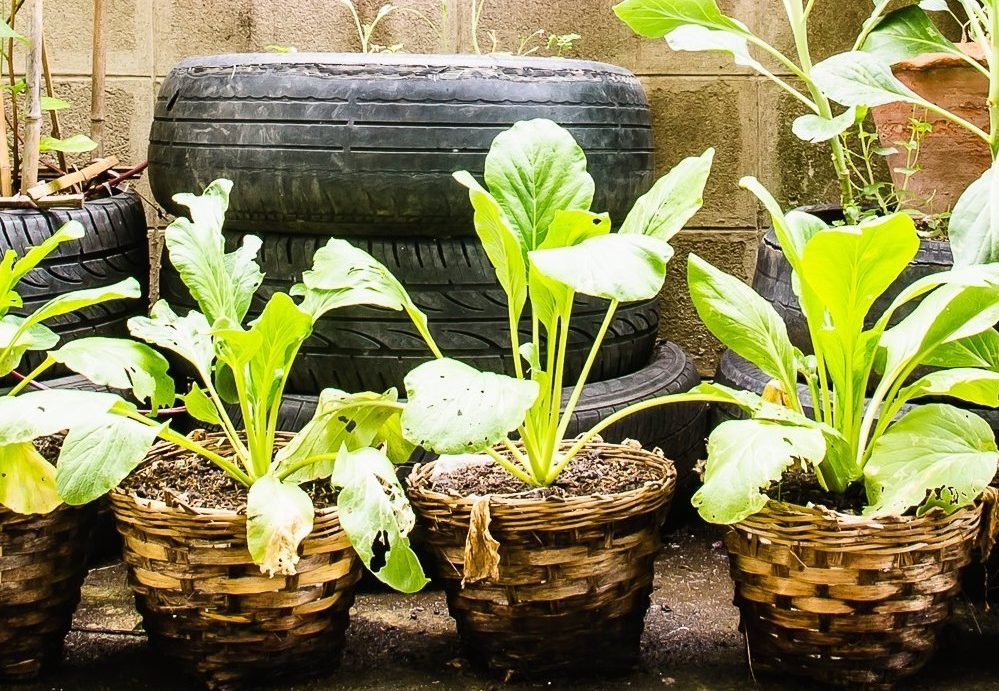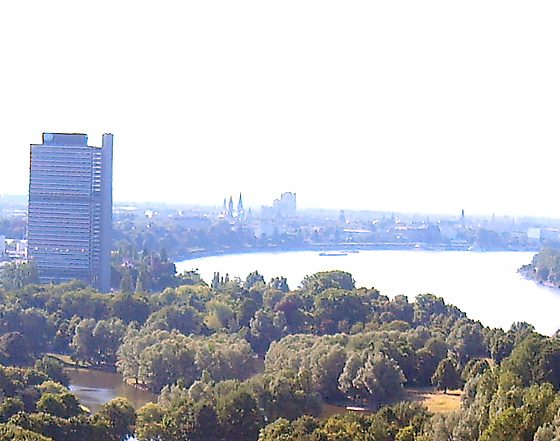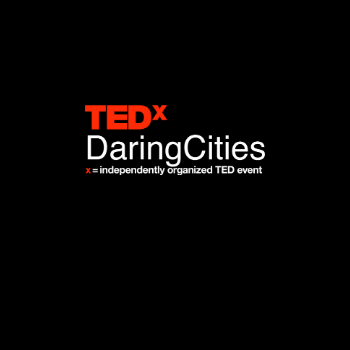The year 2021 marks the beginning of the Decade of Action to achieve the Sustainable Development Goals (SDGs) by 2030. Food systems that are healthier, more sustainable, and equitable are key to achieving many of the SDGs.
COVID-19 also revealed how important the resilience of food systems is. However, overall and beyond emergencies and shocks, food systems are unsustainable and it is fundamental that they be drastically transformed.
A recent FAO survey has clearly demonstrated the enormous and active role that cities and local governments have played in attenuating the effects of the pandemic on the health and food security of their citizens. However, the actions at local level, in most of the cases, were not sufficiently supported by appropriate resources and coordination with actions at national level.
As cities move into the recovery stage, there is an opportunity to rethink the way urban and peri-urban food systems are managed and promote policies and programmes that create incentives and capacities towards economic, social and environmental sustainability. Sustainable urban food systems can drive transformation on national and global scales. The present levels of urban food consumption and waste are of unprecedented magnitude, and are evidence of local governments’ potential. Cities are essential to implement necessary reforms that best reflect local conditions. Urban food systems transformation, therefore, can catalyze innovative and integrated solutions to broader food system challenges.
Two key global summits related to food and nutrition are on the agenda in 2021. At the top of the list, there is the UN Food Systems Summit (UNFSS) in September, to be convened by the UN Secretary-General António Guterres and preceded by a Pre-Summit gathering in Rome from 26 to 28 July. The Summit will launch bold actions designed to be implementable at scale and capable of transforming food systems by engaging various actors. As a key contribution to the Decade of Action, the Summit aims to generate momentum, expand the knowledge base, and share experiences and approaches to unleash universal benefits of food systems.
The Tokyo Nutrition for Growth Summit (N4G), scheduled for December, hopes to capitalize on this momentum for accelerating progress on addressing malnutrition. The N4G is expected to mobilize new policy and financial commitments to help, inter alia reverse the impacts of COVID-19. Ultimately, the N4G mission is to position nutrition as an essential development priority and to announce financial and policy commitments with concrete recommendations to the global community.
The two Global Summits are a key opportunity for fully recognizing the potential of cities and local food systems stakeholders to play a catalytic role in accelerating actions towards sustainable food systems at all levels. It is important that the voices of cities are reflected when shaping the principles on global food systems that will guide actions of relevant stakeholders in the next decade and beyond.
FAO and ICLEI partner for supporting cities in organizing independent summit dialogues
The Food and Agriculture Organization of the United Nations (FAO) and ICLEI – Local Governments for Sustainability joined forces to elevate the voices of cities during 2021’s critical global summits that will mark the turning point for global food systems transformation.
With numbers of urbanization rapidly growing globally, FAO already launched the Urban Food Agenda in 2019, which is one of its flagship initiatives to promote sustainable food systems in urban areas. The Urban Food Agenda can be a valuable base for a fruitful dialogue on food system transformation.
Addressing the five pathways for equitable, nature-based, resilient, low emission, and circular development, the ICLEI Global Food Program supports local and regional governments through its Regional Offices. The Program strengthens the role of cities and regions to transform the food systems towards more sustainable and resilient in producing and consuming food.
The partnership between FAO and ICLEI now supports 26 cities currently engaged in local multi-stakeholder Food Dialogues, ongoing from April to June 2021. This process will bring together key players such as local governments and their associations, cities and city networks, national governments, business sector, academia, as well as farmers, indigenous people, youth organizations, consumer groups, sector representatives and environmental activists. These actors will come together to discuss the 10 year vision on the urban and local food systems and suggest tangible solutions towards and positive change.
Dialogue topics range from holistic food strategy (Nairobi), the importance of food governance (Kisumu) to policies on procurement (Copenhagen), to strong application of hygiene regulations for improving food safety (Dhaka). Some of the dialogues will take the form of the UNFSS Independent Summit Dialogue, while some others will be conducted jointly with other local governments in the region, in the case of Curitiba and New Haven.
FAO and ICLEI have gathered cities that showed strong commitment to sustainable food systems and in engaging local stakeholders. Reflecting on the wide geographical scope of the two partners, the project covers all regions with a special focus on Africa.
- Dhaka, Bangladesh
- Copenhagen, Denmark
- Belo Horizonte, Curitiba, Rio de Janeiro, and São Paulo, Brazil and Lima, Peru
- Izmir, Turkey
- New Haven, USA
- Accra and Tamale, Ghana
- Antananarivo, Madagascar
- Arusha and Dodoma, Tanzania
- Cape Town, South Africa
- Entebbe, Uganda
- Association of Local Authorities, Senegal
- Kigali and Rulindo, Rwanda
- Kisumu and Nairobi, Kenya
- Lilongwe, Malawi
- Quelimane, Mozambique
- Tunis, Tunisia
FAO and ICLEI have also supported the selection of three additional city representatives to be Champions of the UN Food Systems Summit. The new Champions are: Mr. Manuel A. Alculete Lopes de Araújo, Mayor of Quelimane (Mozambique), Mr. Mustafa Tunc Soyer, Mayor of Izmir (Turkey), and Ms. Betina Bergmann Madsen, Chief Procurement Officer of Copenhagen (Denmark), who will join other cities’ mayors, such as Giuseppe Sala (Mayor of Milan) – to elevate the voice of local government in global contexts. This Champion Network of strong food leadership represents a broad range of constituencies. These leaders will inspire and facilitate coordinated action on the road to the Summit.
The food systems dialogues within cities aim to strengthen multi-stakeholder engagement at local level while collectively contributing to enforcing the position of cities as a key driver of food system transformation.
The Informal Urban Food Systems Working Group to empower cities to play a catalytic role at the Summit
The organization of independent dialogues within cities is part of a common roadmap of the informal global urban food systems working group. FAO, together with the Global Alliance of Improved Nutrition (GAIN) is facilitating an informal Urban Food Systems working group that brings together a number of global city networks (ICLEI, C40, UCLG and Milan Urban Food Policy Pact), United Nations Agency (UN-HABITAT, UNEP, UNICEF, WHO and UNCDF) and other relevant global organizations including civil society organizations, research institute and academia that advocate for more sustainable urban food systems. To date, the urban food systems working group have prioritized the following issues as possible game changing solutions for urban food systems transformation: i) urban and territorial food governance, ii) integrating food systems into local planning; iii) the role of local governments in school feeding programmes and procurements; iv) fresh food market and food retail environment; v) increasing public and private financing.
The urban food systems working group will be also co-convening a High-Level Global Summit Dialogue, which is expected to take place at the end of June, to increase and expand political attention on urban food systems.
This Global Dialogue will be the chance to exchange perspectives from local governments, sharing the outcomes of the 26 Independent Dialogues and the results of a city consultations conducted by various cities networks (ICLEI, C40, UCLG and Milan Urban Food policy Pact) on urban food systems game changing solutions.
We invite all stakeholders to follow and engage in the journey of the cities.
More information on the African exchanges can be found on the ICLEI Africa Secretariat website.
This article was jointly written by the Food and Agriculture Organization of the United Nations (FAO) and ICLEI – Local Governments for Sustainability





